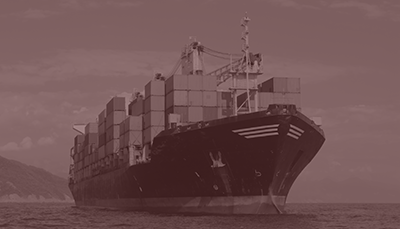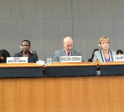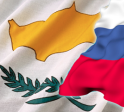While multilateral trade negotiations are as mired as ever, preferential agreements flourish. New economic and political conditions, in particular the gaining influence of emerging countries, make a multilateral agreement more difficult. Developed countries have given up many of their bargaining chips in previous rounds of negotiation and their remaining agricultural tariffs are not sufficient for extracting the concessions from emerging countries on services, public procurement, and intellectual property that would make an agreement possible. The risk of a more fragmented world calls for a revised negotiation agenda and a change in the status of developing countries. Relevant research works can usefully contribute to think about how this revamping. >>> |
- Monetary policy in exceptional times
Urszula Szczerbowicz - IMF Quota Formula Review: still a long way to go
Christophe Destais - The banking union needs a guarantor of last resort
Christophe Destais
- Does Services Liberalization Affect Manufacturing Firms' Export Performance? Evidence from India
Maria Bas - A Model of Firm Experimentation under Demand Uncertainty: an Application to Multi-Destination Exporters
Cristina Mitaritonna, Zhanar Akhmetova - Post-Recession US Employment through the Lens of a Non-Linear Okun's Law
Menzie Chinn, Laurent Ferrara, Valérie Mignon - Disaster Risk in a New Keynesian Model
Marlène Isoré, Urszula Szczerbowicz - Does Input-Trade Liberalization Affect Firms' Foreign Technology Choice?
Maria Bas, Antoine Berthou - The Impact of Yuan Internationalization on the Euro-Dollar Exchange Rate
Agnès Bénassy-Quéré, Yeganeh Forouheshfar - Prices and Productivity: A France-Germany Comparison
Laurence Nayman
- World Bank Economic Review
Chinese Trade Reforms, Market Access and Foreign Competition: the Patterns of French Exporters
Maria Bas, Pamela Bombarda - Economic Change and Restructuring
From foreign trade to international investment: a new step in China’s integration with the world economy
Françoise Lemoine - European Journal of Political Economy
FDI from the South: The role of institutional distance and natural resources
Mariya Aleksynska, Olena Havrylchyk - European Economic Review
Wholesalers in International Trade
Matthieu Crozet, Guy Lalanne, Sandra Poncet - Journal of Development Economics
Trend shocks and economic development
Claude Francis Naoussi, Fabien Tripier
L'économie mondiale 2014
September 11, 2013
ELSNIT Annual Conference: Internationalization of Small and Medium Size Enterprises
October 17, 2013
For a Better Information CEPII is launching a new version of its Newsletter. You will get the most recent news about CEPII's life, formerly issued in The CEPII Newsletter and the Lettre d'information. You will be able to suscribe to alerts and read RSS feeds too. |
This World Economic Overview uses CHELEM data to highlight the main changes in the world economy in the long run and how nations took part in it. Trends over some forty years are featured in the overview : from 1960 to 2012 for GDP, and from 1967 to 2009 for international trade in goods and services. >>>> |
Round-tripping of Russian foreign investment via Cyprus The design of the recent bailout package for Cyprus preserves the offshore banking status that is used by Russian depositors and round-trip investors. Is it worth it? >>> |
Fast rising inequality in China: what can be done about it? As remarkable as its economic growth, China’s income distribution has been worsening since mid-1980s. Inequality across regions, occupations and between individual all rose dramatically. More importantly, it did so in a short time. >>> |
Deadline for application :
November 1, 2013
- Contact us
- Our other sites
 |
ISSN: 1255-7072
Editorial Director : Antoine BouëtManaging Editor : Dominique Pianelli














